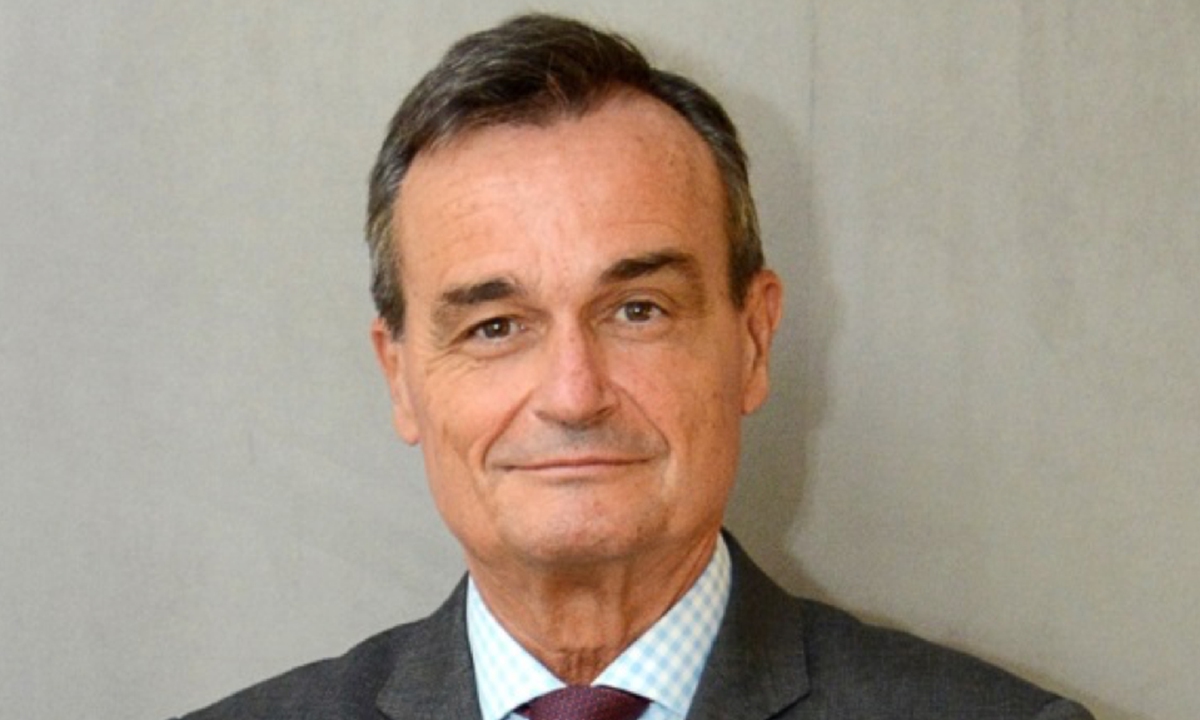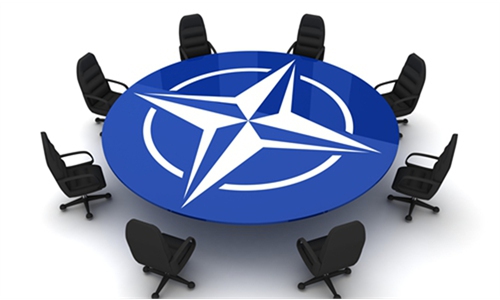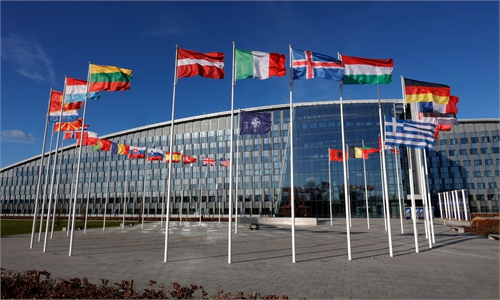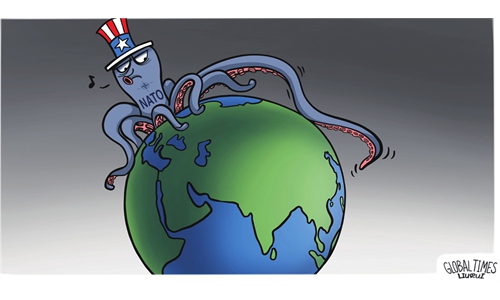If there is an Asian NATO, Europeans are not going to be part of it: former French ambassador to UN

Gérard Araud
Photo: Courtesy of Gérard Araud
The Russia-Ukraine conflict continues and, at the same time, NATO puts China higher on its radar, as the bloc recently said for the first time it must include China's "growing influence" in its defense strategy. South Korean and Japanese foreign ministers were invited to join a NATO session earlier this month. Is NATO expanding to Asia? How can China and Europe cooperate amid the current geopolitical tensions? Gérard Araud (Araud), former French ambassador to the UN and the US, shared his views with Global Times (GT) reporters Li Aixin and Bai Yunyi.
GT: Some say that what the US is doing in Asia now is no different from the formation of NATO. The prototype of an "Asian NATO" has already taken shape - AUKUS, Quad are part of it. Do you think NATO is expanding into Asia? Or is an "Asian NATO" taking shape?
Araud:NATO is not expanding into Asia, because in the NATO treaty there is a geographic definition. The geographic definition excludes Asia.
What you are raising is an interesting question, which is whether there will be, in Asia, a Cold War, which means the same Cold War that we had between the West and the Soviet Union. Is Asia going into this situation? I don't think so. There are two major differences.
First, between the Soviet Union and the US, there was no economic relationship, but between China and the US there is a very important financial and economic relationship. It means that in any case, you'll have to talk; you have to keep a very important relationship between the two adversaries.
The second one is more important. Most of the Asian countries don't want to choose between China and the US. In a Cold War, you are either on one side or the other. In Asia, all these countries want to avoid this.
Obviously, the US is trying to balance China and is doing it with Australia. But with the Quad, it's a bit more complicated because of India. On one hand it wants to balance China, but on the other hand, India doesn't want to become simply a client of the US. So the situation is much more complicated, much more flexible in Asia.
The problem is that in the coming years, the US and China will have to define the red lines. What are China's red lines? What are America's red lines? And they will have to find a way of living together. The US-China relationship will be the most important relationship in the world. So we hope that they will reach an understanding. There will be misunderstandings. There will be incidents. But what we need is not only containment, but also engagement. We need a strong political dialogue between the two main powers in the world.
There will not be a Cold War in Asia. But it is obvious that whatever the result, the outcome of the war [in Ukraine], the relationship between the West and Russia will be a Cold War. Since 1945, we have not had a war between states in Europe. In a sense, Europeans believed that they were free from wars. We have had two or three generations of Europeans who don't know what war is. After such an aggression, I think that the public opinion in European countries won't accept business as usual with Russia anymore. Unfortunately, I think that we are going to enter into a new Cold War between the West and Russia.
GT: Since the beginning of the crisis in Ukraine, France has been acting differently from other EU countries by putting efforts into coordinating with other EU and NATO member states on talks with Russia. What role do you think France can play in the conflict?
Araud:I think this is also a question for China - how to bring the two sides to a real negotiation. But at the end of the day, I think the third parties, China or France, are not going to play a major role. It will be a negotiation between Ukraine and Russia to find a way out. This is what Macron is trying to do.
GT: You tweeted that "Seen from Europe, China is a rival, a competitor but not an enemy." What do you expect from the future cooperation between the two?
Araud:China, the US and the EU are the major economies in the world and we are living in a global world, although it is less and less global. It's normal that each economy, in a sense, is competing with the other.
Chinese are very good at competing. For Europeans, we consider that it's difficult to invest in China, for instance, to bid for a public procurement in China.
At the same time, competing doesn't mean that you are enemies. China is not threatening Europe. China is not a military threat against Europe. There is no reason to have this inflammatory rhetoric that the Americans are using against China.
The question for the EU in the coming years will be how to define its role between China and the US. We are closer to the US because of our political system, which is closer to the American one, and our vision of society is closer to the American one. But as I told you, there will not be an Asian NATO, or if there is an Asian NATO, Europeans are not going to be part of it.
And even among the Europeans, there are differences between France and the UK, between Germany and the UK. So the question will be how to build this realistic relationship with China based on fair competition and cooperation.
We have a common interest in stabilizing the world. And so we have to find a way of cooperating together.
GT: You tweeted: "We, in the West, underestimate the resentment of the rest of the world against us. I am convinced that even if they don't particularly like Russia, a lot of non-Westerners are supporting it only because it is confronting us."
Araud:I felt it when I was the French ambassador to the United Nations. I discovered there was resentment expressed by the ambassadors of the third world countries against the West.
There is a colonial past which is feeding some resentment. There is also the fact that the West is lecturing the rest of the world and using double standards very often. I'm quite aware that, after all, invading Ukraine is no more scandalous than invading Iraq in 2003. France opposed the invasion of Iraq by the US. But it's a good example of what you can call double standards.
I used to say, look at the military intervention of the US, and look at China in the last 30 years. There is no Chinese military intervention in the last 30 years. On the American side, you have a long list of military interventions.
So it's something that the West should take into account, maybe to change our behavior. But between us, I know that the Americans are not going to change their behavior. That's really part of their national character, believing they are the beacon of freedom in the world. I'm writing for a French weekly, which says that when you look at this war, from a Western point of view, we would be expecting every country to be on our side. But the Russians are greeted in some countries. Mr. Lavrov, for instance, was in New Delhi recently. He was greeted with smiles by the Indians. I'm not sure that Indians raised the issue of Ukraine. That's a good example. It's not only China. When you look at the votes, China, India, South Africa abstained in the UN General Assembly. And the West should really take this into account in its vision of the world.



